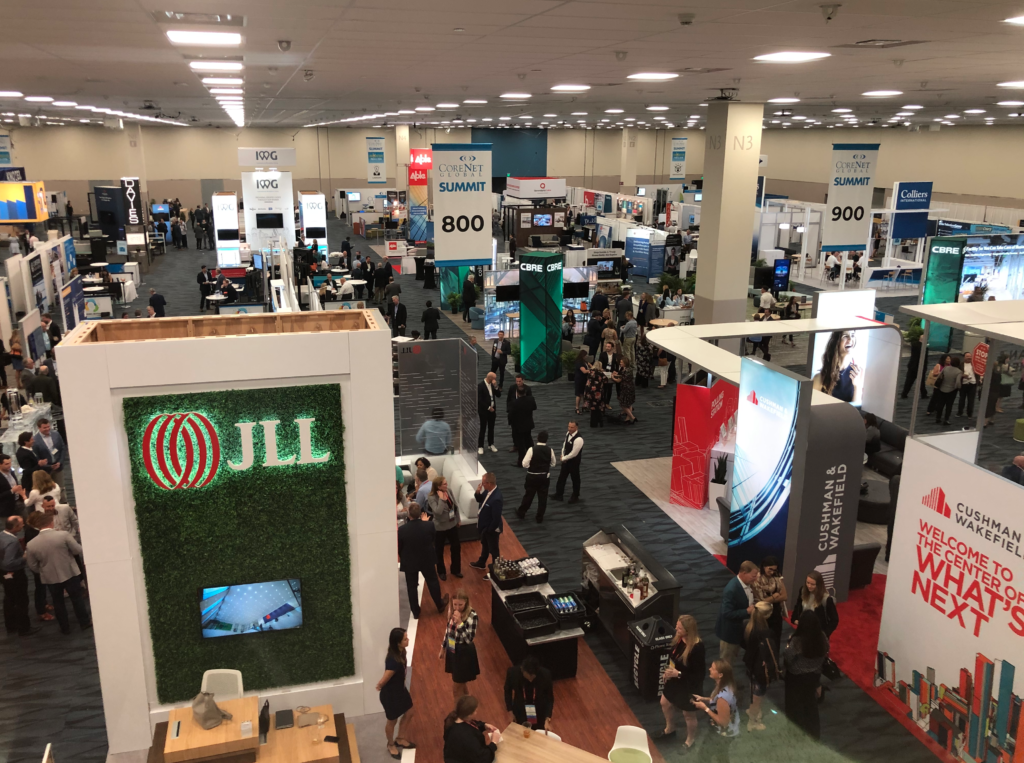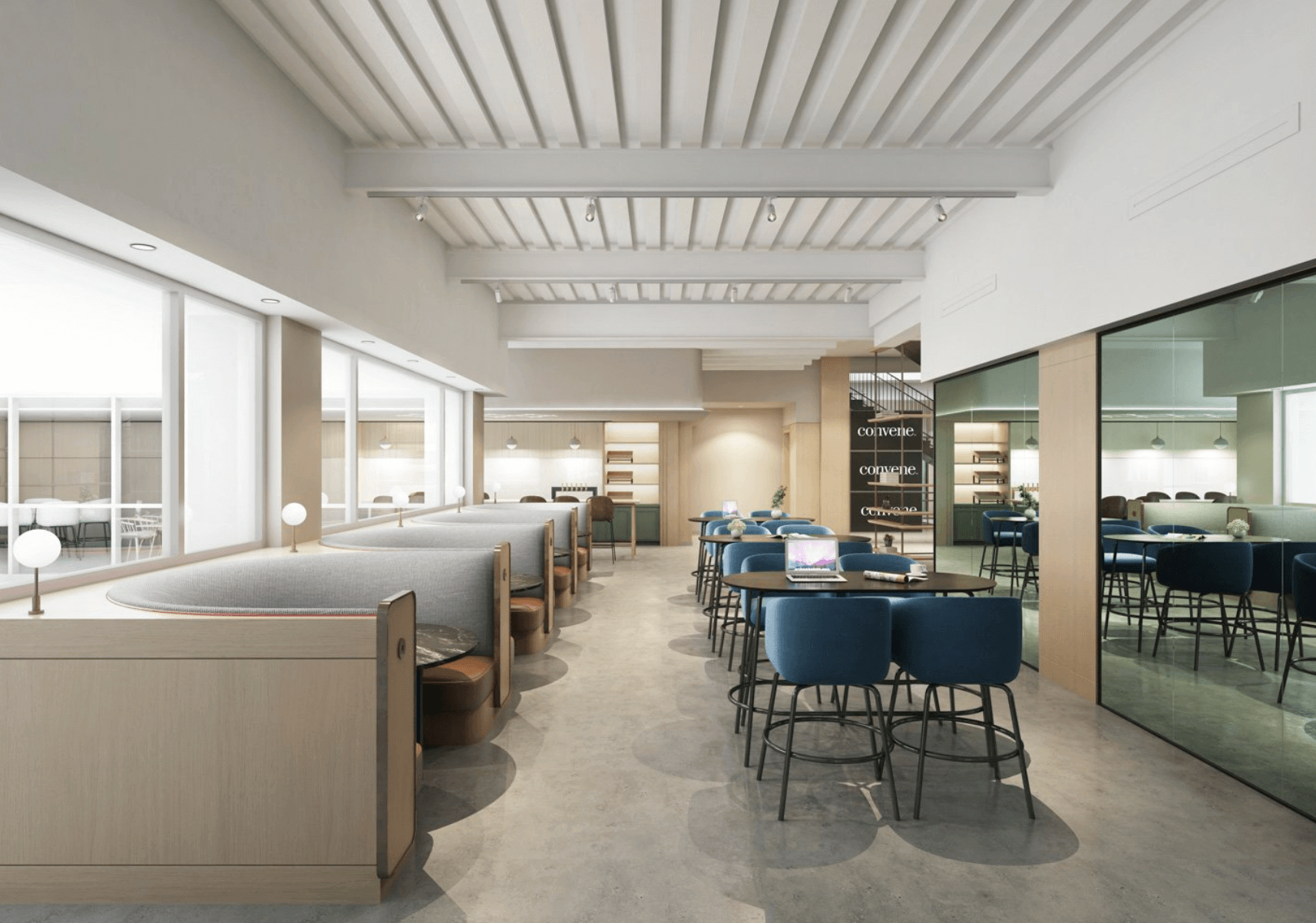Density recently attended CoreNet Global Summit 2019, the largest annual corporate real estate event featuring more than 3,000 real estate and workplace professionals. During the two-day event, our team had hundreds of conversations with current customers and other real estate executives.
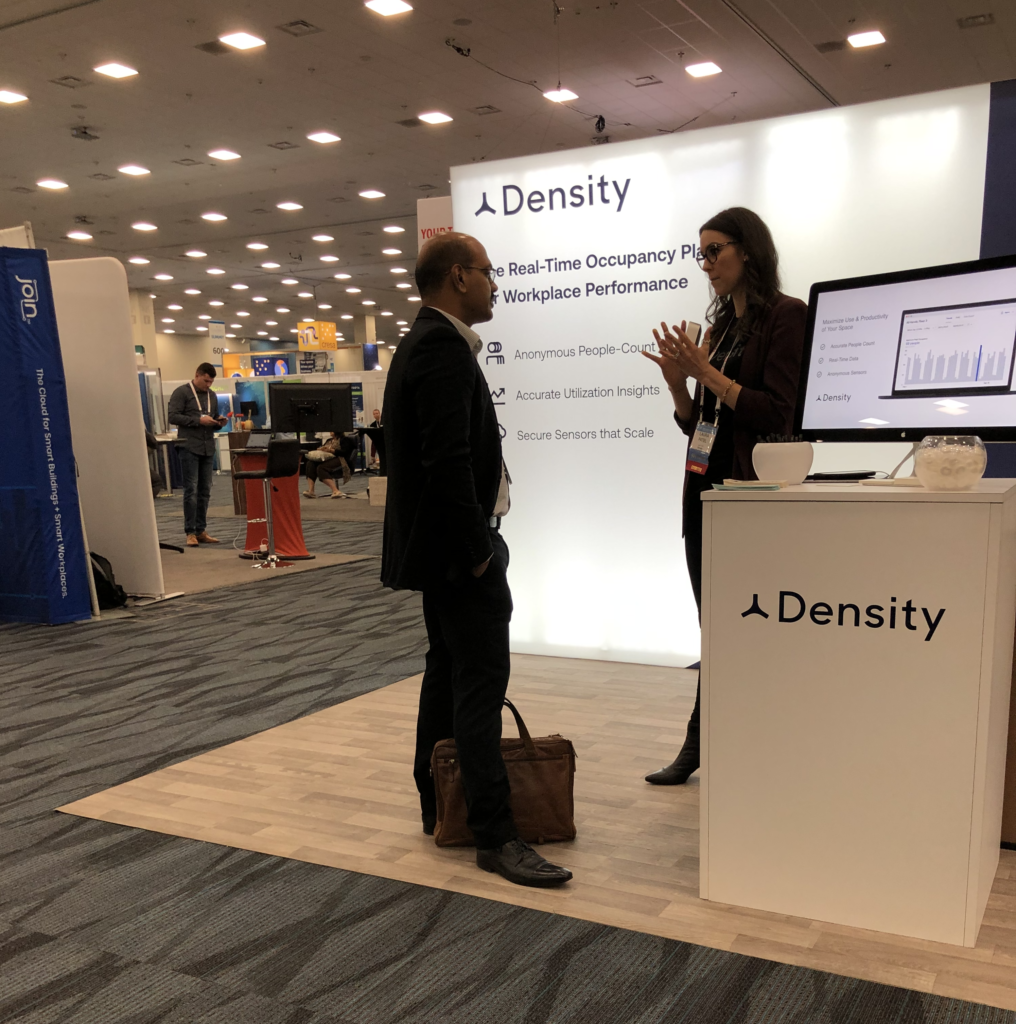
Here are four key takeaways from the event:
1. From expense to experience
CoreNet Global was hosted blocks away from Disneyland in Anaheim, California. So, it was fitting that Duncan Wardle, Disney’s former Head of Innovation and Creativity, kicked off the opening session.
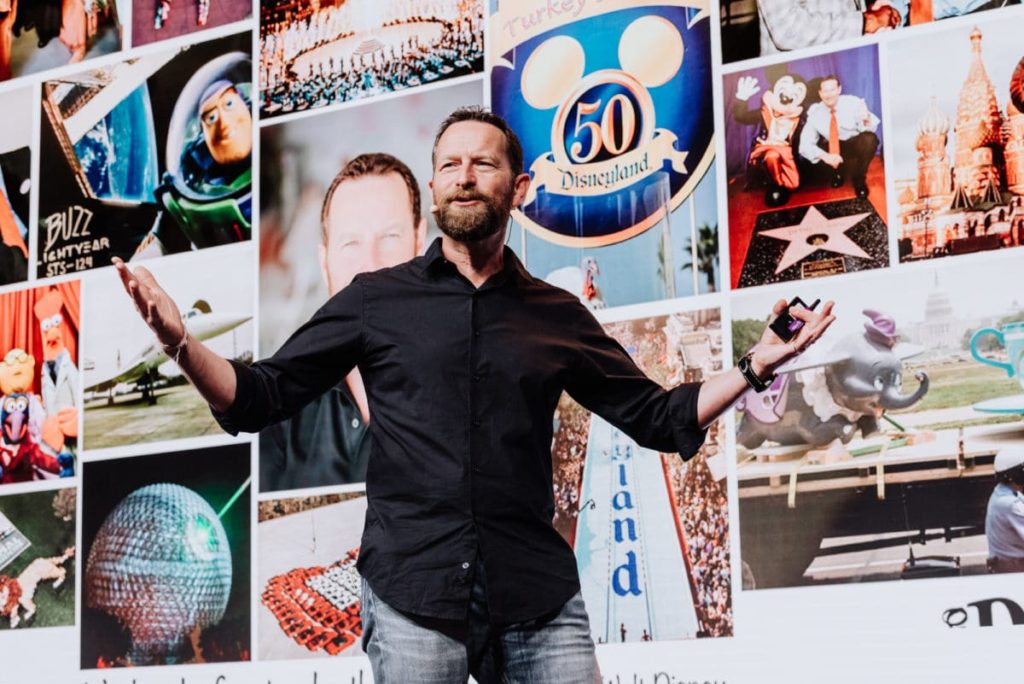
“Where do you get your best, most creative ideas?” he asked the audience. Tellingly, no one answered “while at work.” With this in mind, Wardle urged the audience to rethink the workday experience by putting people first.
Other speakers shared a similar message: workplaces are not simply a cost center but a competitive advantage for recruiting and retaining talent. The CoreNet attendees agreed. In a real-time survey, they showed the range of metrics needed to manage an effective portfolio:
What Key Performance Indicators (KPIs) do you currently use?
- Cost: 62%
- Utilization/Occupancy Rates: 59%
- Density: 43%
- Employee workplace experience: 36%
- Other: 14%
- We don’t use any KPIs: 11%
2. Coworking ≠ WeWork
In light of recent WeWork news, coworking was a hot topic at CoreNet Global Summit 2019. The message from competitors was clear: Even if WeWork fails, flexible office solutions are here to stay.
Chris Kelly, founder of Convene, urged the audience to focus on the broader trendline of coworking, not the headlines. Other flexible office solutions had a similar message. Knotel, a flexible office provider, showcased its new line of furniture subscriptions as a way to differentiate offerings. Brokers that specialize in coworking downplayed WeWork as one of many solutions on the market.
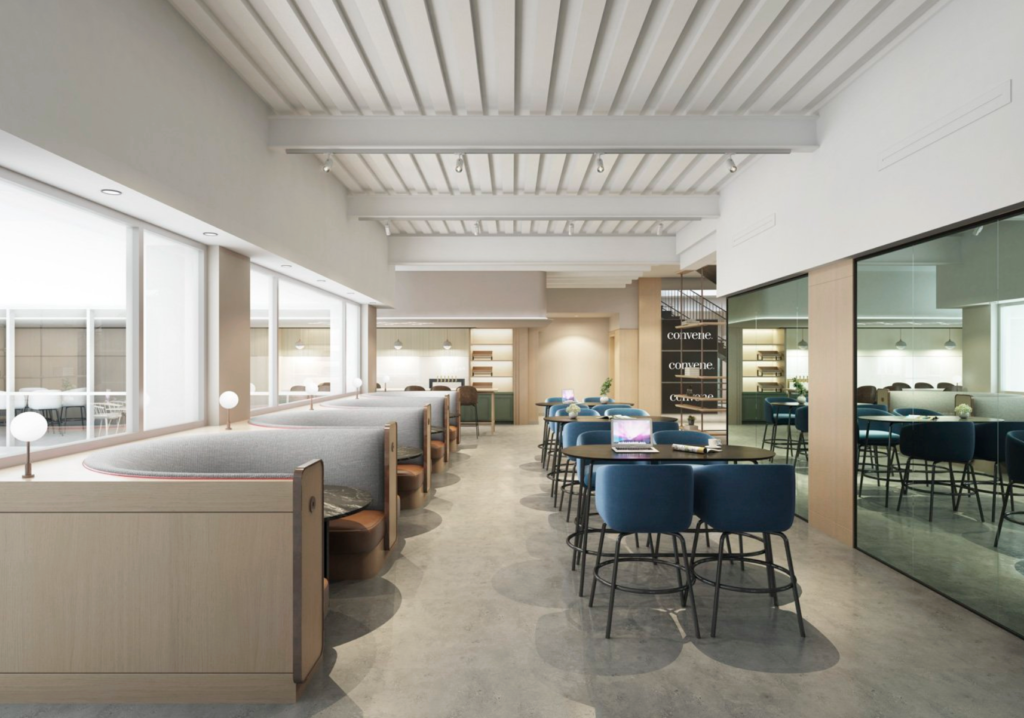
The overall message: Coworking has become a clear part of corporate real estate strategy and the ecosystem of options is larger than ever.
3. Security matters
Security was a key theme throughout the event that carried into a range of presentations, including those focused on emergency preparedness, cybersecurity and physical security. Ann Hardy, Chief Security Officer at Join Digital, offered some practical tips in her session including, “Be secure by design,” “Authenticate, authorize, mentor” and “Assume breach mentality.”
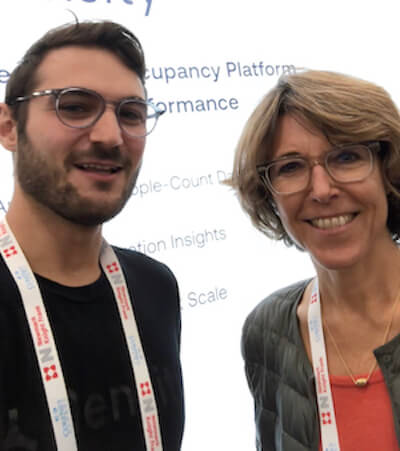
After her talk, Hardy spoke to us about her session: “I was asked a lot of questions including: ‘How do you secure [data] on cloud?’ ‘How do you secure financial transactions?’ ‘How can you use blockchain?’ ‘How do you respect privacy with IoT devices?’ Security was clearly top of mind.”
4. Make A.I. actionable
In previous years, corporate real estate executives were just beginning to understand what the buzzword of artificial intelligence might mean for the future of the industry. This year, real estate and workplace teams seemed to be more open to exploring how to use A.I. to solve real-world problems within space planning, physical security and facilities management.
We spoke to a number of workplace teams that were eager to use data from sensors to answer questions like: “How much food should I prepare for my employees?” “How can I prevent a physical security breach?” “How do I cut down on costs without negatively impacting experience?”
These conversations taught us an important lesson: A.I. is no longer just a buzzword if it becomes a tool for constant improvement and data-driven decisions.
